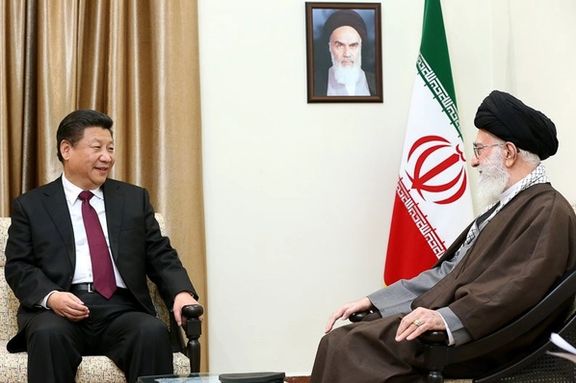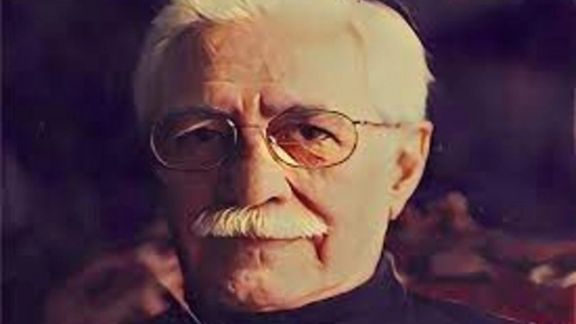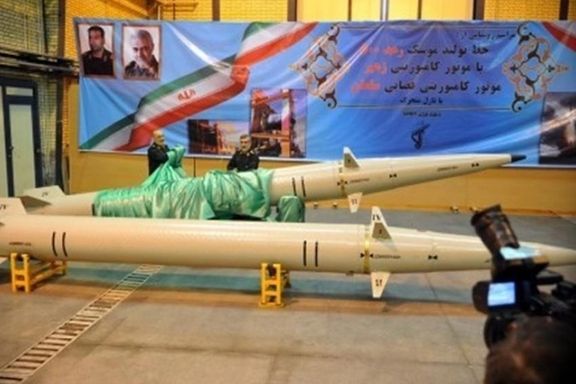Russian Lead-Tainted Wheat Gets License For Consumption In Iran

Iran's health ministry has issued a license for human consumption of contaminated wheat from Russia, despite tests that showed high levels of lead.

Iran's health ministry has issued a license for human consumption of contaminated wheat from Russia, despite tests that showed high levels of lead.
Head of Iran’s Food Industries Associations Mohammad Reza Mortazavi said on Sunday that the health ministry has determined that the amount of lead in the wheat is “standard and natural”.
He noted a health ministry letter that was sent last week had warned the wheats were contaminated with a hazardous amount of lead but now the ministry has approved the necessary licenses for human consumption based on results of new tests.
Mojgan Pourmoghim, the head of the Food and Drug Administration's quality control laboratory, had earlier confirmed the contamination, saying, "The clearance permit for the wheat shipments is temporary and it is issued only because the country's wheat silos are empty”.
These contaminated wheats have not yet entered the consumption cycle, she added.
Gholamhossein Shafei, the chairman of Iran’s Chamber of Commerce, had warned of the shortage of wheat in March last year due to the severe drought that hit domestic production.
According to an October report by Reuters, Iran needed to buy a record 8 million tons of wheat in the current season to be able to provide its population with bread that is an important food staple in the country.

One day after residents heard a series of loud explosions in Western Iran, authorities continue to offer contradictory explanations, with no clear conclusion.
The explosions were heard in many cities across the provinces of Kermanshah, Hamedan and Kordestan Saturday night, causing numerous speculations and rumors by residents of the region as well as officials.
Soon after the blasts, Saeed Ketabi, the governor of Asadabad city in the Hamadan province – which is reportedly the epicenter of the explosions -- confirmed that a loud noise was heard and rejected earlier reports about the noise coming from thunders and storms.
At the same time some sources claimed that the sounds were part of an air defense exercise by the Islamic Republic's Armed Forces and some reports quoted Iran's Revolutionary Guard as saying that they launched air defense drills in the region.
Social media reports said that there was anti-aircraft activities with some twitter users saying an anti-aircraft missile was fired and then there was one explosion near or at a military base.
However, Khatam al-Anbia Air Defense Base rejected the news, stating that no military training, exercise, or operations took place in the country Saturday night.
Iran's aviation authorities added to the mystery by confirming that flights were cancelled in Western Iran at the time the explosions were heard, but say it was just because of weather conditions, not any explosion.
After a series of contradictory and failed explanations, the authorities are apparently back to the older version they had put forward, to give off a vibe of being in control. Officials from the interior ministry said on Sunday that the loud sounds heard in several western cities were the result of lightning.
Some unnamed “informed source” is quoted by Tasnim – a news agency with links to IRGC – that the sounds were actually “thunder and lightning”, as if the inhabitants of the Zagros Mountains region are new to the phenomenon.
The source also denied reports attributing the sounds to acts of sabotage or foreign attack. Similar sounds of explosion were heard in early December around Natanz nuclear facility in central Iran, which officials said came from military drills.
Earlier this month, the sound of aloud explosion was heard in a town near Tehran, prompting IRGC to announce it as the result of a “controlled rocket launch”.
Tensions are high in the region amid Iran’s nuclear talks with world powers. Israel has repeatedly said it will not tolerate Iran reaching a nuclear breakout point, while Tehran has threatened severe retaliation in case of any attack.
Iran has held several military exercises in recent months.
After the downing of the Ukrainian flight PS752 with two missiles in January 2020, the Iranian government and the IRGC tried to hide the true cause for three days, and only came forth to admit the tragic incident was not an ordinary plane crash, after amateur video footage emerged showing the plane exploding.

Amid widespread criticism of Iran’s 25-year agreement with China, foreign minister Hossein Amir-Abdollahian told Chinese television that the deal is a “win-win” for both countries.
In a meeting on Friday, Iranian and Chinese foreign ministers announced the launch of the long-term strategic agreement, the details of which is kept secret. Iranians on social media called the agreement a sell-out of national interests and the country’s independence.
Amir-Abdollahian in his interview with CGTN television insisted that “We have included all aspects related to the interests of the two nations in the agreement.”
Earlier, Hossein Nushabadi, a senior member of Iran’s parliament had said that with the agreement Iran can facilitate its trade and banking relation to defeat United States’ sanctions.
Iran’s minister of economy, Ehsan Khandouzi has said that various government ministries have begun consultations with Chinese counterparts for specific agreement in different fields.
In December, Iran authorized the opening of a Chinese consulate in Iran’s Persian Gulf port of Bandar Abbas, signaling the launch of a foothold for Beijing in one of the most strategic regions in the world.
Iran’s anti-Western Supreme Leader Ali Khamenei insists on foreign and economic policy relying on the East, meaning China and Russia, but until 2021 Beijing was cautious about expanding ties with Iran because of US sanctions.

A senior Iranian lawmaker says the 25-year strategic agreement with China will worry the United States and may push Washington to compromise in the ongoing nuclear talks.
Ahmad Amirabadi Farahani, who is the chairman of Iran-China parliamentary friendship group, said on Sunday that the deal can convince the US to expedite efforts to return to the 2015 nuclear deal and lift Iran sanctions.
On Saturday, Iranian Foreign Minister Hossein Amir-Abdollahian and Chinese Foreign Minister Wang Yi announced the official commencement of the agreement's implementation.
Farahani described the agreement as an important step to increase Chinese investments in Iranthat will expand Tehran’s ties with the entire region.
He criticized the former president Hassan Rouhani’s administration for trying to mend ties with the Western countries, saying that the strategy of the incumbent government is focusing on relations with regional states.
Farahani said negotiations are underway now so that Tehran can increase collaboration with Saudi Arabia, Qatar, and Oman, while the country’s membership in the Shanghai Cooperation Organization can further boost relations with Turkmenistan and Pakistan.
He noted that Washington seeks to weaken the economies of Iran and China, therefore this common enemy can help strengthen relations between Tehran and Beijing, and the 25-year deal is a good step in this direction.

Iraj Pezeshkzad who immortalized the phrase, "It's the work of the British" in the most popular satirical Persian novel of the 20th century, passed away this week in California at the age of 94.
The highly acclaimed work, My Uncle Napoleon, was published in the early 1970s and was made into an extremely successful TV series. It was banned after the Islamic Revolution of 1979 but is still among the most sought after underground works of literature and film in Iran.
In Pezeshkad's novel set at the onset of the Second World War in Tehran, the small local wars that the main character of the book, a low-ranking officer once fought, gradually evolve into great wars against the British on par with the Napoleonic Wars. Uncle Napoleon's orderly, the simple and uneducated Mash Ghasem, not only begins to believe, or pretend to believe in the stories of Uncle Napoleon's heroic wars against the British, but also increasingly attempts to weave stories of his own heroism into it but the imaginary adventures only make the delusional patriarch the laughingstock of the family.
Pezeshkzad, a former French-educated judge and diplomat, captured the imagination of Iranian readers with his most vivid characters in a manner that no other contemporary author has. There is almost no one in Iran who is not familiar with his characters and its many famous catchphrases including, "It's the work of the British."

The main character of My Uncle Napoleon has gradually come into believing his own stories, identifying himself with Napoleon, and living in constant fear of British plots to kill, or failing that, to dishonor and discredit him. "It's the work of the British", the old man will say in the face of any mishap that befalls him or his family. Even a sex scandal involving a niece of the family in Uncle Napoleon's delusional mind, is cited as proof that there is a British conspiracy against him.
The fame of the book and its catchphrase is such that British diplomats in Iran in the years following the publication of the book came to know about it probably within the first few days from their arrival. Former British Foreign Secretary Jack Straw even took inspiration from it to write a book entitled "The English Job: Understanding Iran and Why It Distrusts Britain".
Amongst British diplomats, there’s a poignant joke that ‘Iran is the only country in the world which still regards the United Kingdom as a superpower’. For many Iranians, it’s not a joke at all," an introduction to Straw's book said.
Nearly two centuries of Iranian politics, particularly the 19th century, was deeply influenced by the British-Russian embassies and their rivalries. Many Iranians still see the hand of the British in everything. Probably with the historical fear of the Iranians toward the British in mind, Iran's Supreme Leader Ali Khamenei in 2009 cast the blame for nationwide unrest following a disputed election on the British government. Hardliners claimed the British were behind the "sedition" against the Islamic
Pezeshkzad never singled out a real-life inspiration for the pathetic, delusional and bullying character who the children of the family including the narrator always called Uncle Napoleon amongst themselves. In a speech at the University of California, Los Angeles, Pezeshkad said the character originated in his memories of his childhood when grownups would indiscriminately label most politicians as "British lackeys".
Pezeshkzad made every episode of love or feud in Uncle Napoleon's family into funny, yet often very tender, narratives. His book, he told BBC Persian years ago, was inspired by the story of his own naive teenage love and memories from his own extended family. Pezeshkzad's book has been translated into several European languages including English.

Social media reports by journalists and citizens in Iran say a series of loud explosions were heard tonight in Western Iran, around the cities of Hamedan and Kermanshah.
Some reports quote Iran's Revolutionary Guard as saying that they launched air defense drills in the region, but it cannot be independently verified.
Social media reports said that there was anti-aircraft activity, but it is not clear if it was part of drills or not.
One video, that Iran International cannot verify its authenticity, includes sounds that resemble anti-aircraft gun fire, and a voice in the video says explosions were heard. The images are from a city, but no location is mentioned.
There are no reports of aircraft activity in the region, but one tweet said an anti-aircraft missile was fired and there was one explosion near or at a military base.
The weather in western Iran on Saturday was overcast with rain and snow, which reduces the likelihood of military drills.
Tensions are high in the region amid Iran’s nuclear talks with world powers. Israel has repeatedly said it will not tolerate Iran reaching a nuclear breakout point, while Tehran has threatened severe retaliation in case of any attack.
Iran has held several military exercises in recent months.